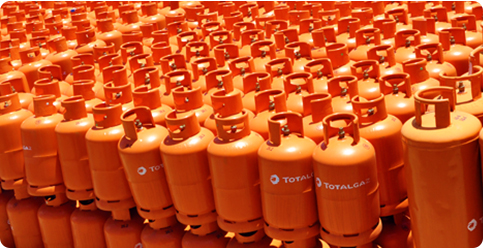The Government has removed tax on liquefied petroleum gas (LPG) – commonly known as cooking gas. The move is meant to increase the number of Kenyans using clean energy and reduce the cost of living.

This is after President Uhuru Kenyatta assented to the Finance Bill 2016, which among others regulate taxation measures in respect of gaming, betting and competition.
Other major amendments in the Finance Act, 2016 include the removal of excise duty on locally assembled motor vehicles and motor cycles to promote assembly; tax amnesty for taxpayers who have investments outside Kenya to reinvest back home; VAT exemption for park entry fees and tour operator services to promote tourism; VAT Exemption for inputs for manufacture of animal feeds, aimed at reducing the cost of the feeds and reduction of income tax corporate tax rate from 30 per cent to 15 per cent for investors who put up more than 400 residential housing units to promote housing development.
Further amendments include the legal framework for the establishment of the Commodity Exchange Market; the expansion of the income tax brackets by 10 per cent. It is estimated that 87 per cent of Kenyans use solid fuels for cooking while five per cent use kerosene.
In Kenya, LPG is commonly used in urban areas, with Nairobi accounting for 60 per cent of the market and Mombasa 15 per cent while the rest is scattered around other growing urban centres with only one per cent usage in rural areas.
This is largely driven by low availability of firewood in urban centres, and ease of LPG distribution due to the greater population density. Analysts argue that improvement across the LPG value chain need to be made to bring down the cost, create awareness among consumers and increase distribution efficiency to reach majority of Kenyans.
Currently, LPG in Kenya is supplied in Gas Cylinder in 6kg, 13kg, 35kg, 50kg capacities under the major oil companies. For instance Kenol Kobil supplies LPG under K-gas brand name and retails at 6kg – Ksh800-1,200, 13kg – Ksh1500-2,800, and 35kg -Ksh 7,150. Others suppliers include: Shell – Afrigas, Oilibya – Mpishi, Total – TotalGaz, National Oil – Supa Gas, Pan African Petroleum – Pangas, BOC – Handigas, Oryx Energies (formerly Addax), Fossil – Petgas, Midland Energy – Midgas, Quality Gas – Q-gas, Hashi Energy – HashiGas, Text Trading – TexGas and Green Energy – Green Gas.
The Energy Act 2006, section 80 requires that persons engaged in LPG in Kenya do so under and in accordance with terms and conditions of a valid licence issued by the Energy Regulatory Commission (ERC). It requires a person who wishes to conduct wholesale LPG business or filling to apply for a licence from the regulator.












